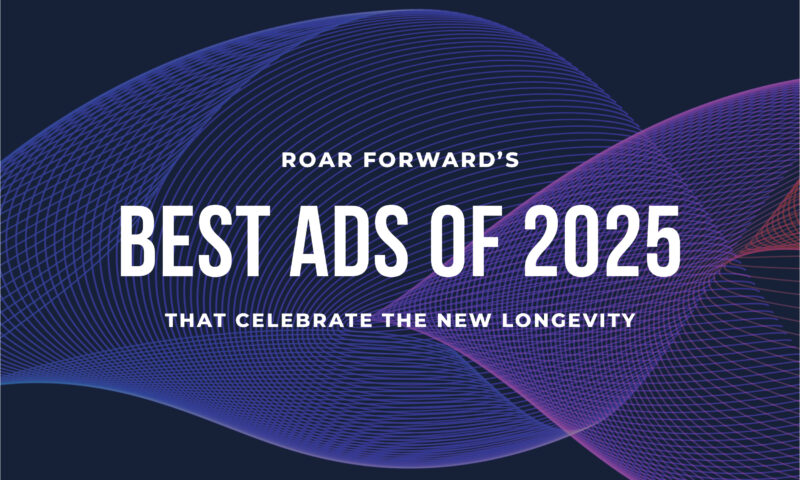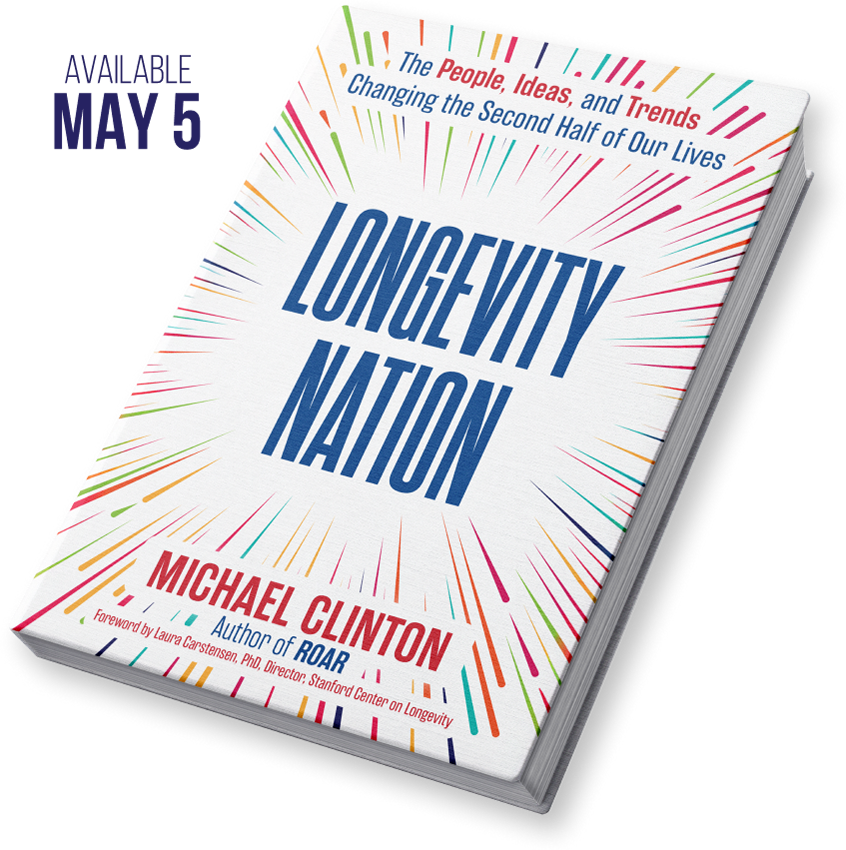
By Martha McCully
Letting go of the fixation is yet another silver lining to getting older
“You can never be too thin (or too rich or too tan),” repeated my Italian great-aunts as I grew up worrying about every pound, thanks to them. Before I graduated from high school, I was a graduate of Weight Watchers and Diet Workshop. In my teens and 20s, my brain was imprinted with images of Cheryl Tiegs and Christie Brinkley, literally solidifying the thin archetype in my mind. Since then, I’ve drank Ensure with fish oil for days, Master Cleanse tonics for weeks, and celery juice for years. Being a magazine editor for decades added to my fat neurosis. My lifelong pursuit of thinness was a focus, sport, and energy suck that had plagued me since, well, kindergarten.
Ads for “Stubborn Belly Fat” still pop up on my Chrome browser, but I’ve noticed something interesting now that I’m older: I care a lot less about fat, and even thinness. I’m not on Ozempic, nor have I tried any other GLP-1. But I’ve definitely lost interest in the fight. In talking to other women, I realize I’m not alone.
“I believe we are given a choice at this age,” says Mind Coach Manjit Devgun. “Are you going to lean into your wisdom years?” She says that after 50, the natural aging process starts to catch up, you get that little “menopause belly’” and your looks are “so-called taken away from you” — for a reason. “At this age, we are not supposed to have such an emphasis on our looks, but instead to lean into our purpose and why we’re really here, which has to do with your contribution to the world,” she says.
While modeling in her 20s, Devgun says she was “trying to catch up with everyone, trying to be skinny, and even white, as there was only one Indian supermodel at the time, Jasmeen Ghauri. Now, I’m just accepting of who I am, I’m in the trust of I don’t look like a supermodel — that’s not my path — but I look like me. That’s what I’m leaning into.” Her app Manjit includes meditations called Recognize Self-Worth and Self-Love.
But the thin ideal of female beauty has not evaporated. Especially among younger women, body dissatisfaction is still prevalent — despite an energetic body positivity movement. Mental health issues like anxiety, depression, and eating disorders often go hand in hand with it. But any woman reading this knows that. Physical health, too, is at stake when, say, a young woman takes up smoking to get skinny.
Even as our cultural fixation with thinness persists, the trend is downward, and perhaps kinder. A study of 1053 women aged 30-74 in Switzerland found that 71% wanted to be thinner (though 73% were of normal weight). Among those older than 65, only 62% wanted to lose weight (65% were of normal weight). Older women report a lower drive for thinness and less fear of being fat than mid-life women. Another study found that older women appreciate their bodies more as they age, and more than their younger counterparts do. So, it’s not just a lack of dissatisfaction, but a true appreciation as we get older.
Body image still can trigger dissatisfaction, but in older years it’s conflated with worries about aging. The media often features younger women, so the thin-youth ideal gets reinforced even among older women who see these images. Self-objectification is when we view ourselves as an object and compare ourselves to media ideals. Older women (over 60) report lower levels of self-objectification than younger women do (20s-30s). It’s a more complex issue as we get older as many factors are in play, but studies show we compare ourselves less and less to these ideals.
Our physiology has a lot to do with caring less. “During menopause, hormonal changes can affect brain chemistry, leading to shifts in mood and self-perception,” according to Dr. Tara Swart, neuroscientist and author of The Source. “Many women find that they become more accepting of their bodies during this time.” Indeed, studies also show that eating disorders develop with the onset of puberty and are more pronounced in perimenopausal and menopausal women who report severe menopausal symptoms, which reinforces a hormonal link.
Psychologically, we are wiser. So spending our resources worrying about what may exist only in our minds can now be viewed as a big waste of the valuable time we have left. “It’s a combination of life experience, shifting values, and a better understanding of what truly matters,” says Dr. Gabrielle Lyon, New York Times bestselling author of Forever Strong: A New, Science-Based Strategy for Aging Well and Founder of Muscle-Centric Medicine® that focuses on building strength as we age. “As the body naturally changes with age, people often realize that strength, energy, and mobility are more meaningful than appearance,” she says. Her fitness and nutrition coaching with clients emphasizes muscle as the key to longevity. “By our 50s and 60s, the focus often shifts — from chasing physical perfection to prioritizing functionality, health, and independence,” she says.
We also have more going on, from careers to families to traveling and enjoying life, including the pasta and vino we discover along the way — and more experience in understanding ourselves. We now know that those extra 5-20 pounds only matter if they interfere with our physical or mental health, not when they prevent us from wearing our 2005 skinny jeans.
How to get on board with caring less? Dr. Lyon suggests emphasizing strength, posture and mobility which correlate to how we feel in our bodies. “When we feel physically strong and capable, confidence rises, regardless of appearance,” she says. Focus on body composition, not weight. Build muscle mass, which we know is crucial as we age (this can increase weight too, so stop looking at the number on the scale!) Also we need to get enough quality sleep, take care of our gut health, mental health, and energy levels that can shape how we view ourselves day to day. “There is no one-size-fits-all trajectory — but investing in strength consistently improves the quality of that journey,” she says.
It’s not to say we don’t care how we look, either. It’s just letting go of the unhealthy obsession. “I want to look the best I possibly can for my age,” says Devgun, who also suggests Qigong moves for flexibility and agility as well as dancing. “But we have to do the work to be in acceptance, to know our triggers, sit in meditation, design how we want to feel, take the time to slow down and understand we create our reality, not the supermodels, society, or magazine photos. It’s the real inner beauty we have to bring forward and let that shine.”
In her book The Upgrade, neuropsychiatrist Dr. Louann Brizendine writes, “As we age, the brain’s reward system becomes more attuned to experiences of joy and contentment, rather than physical appearance. This can lead to a greater sense of body satisfaction and overall well-being.”
I just wish my great-aunts could have known that feeling too.



